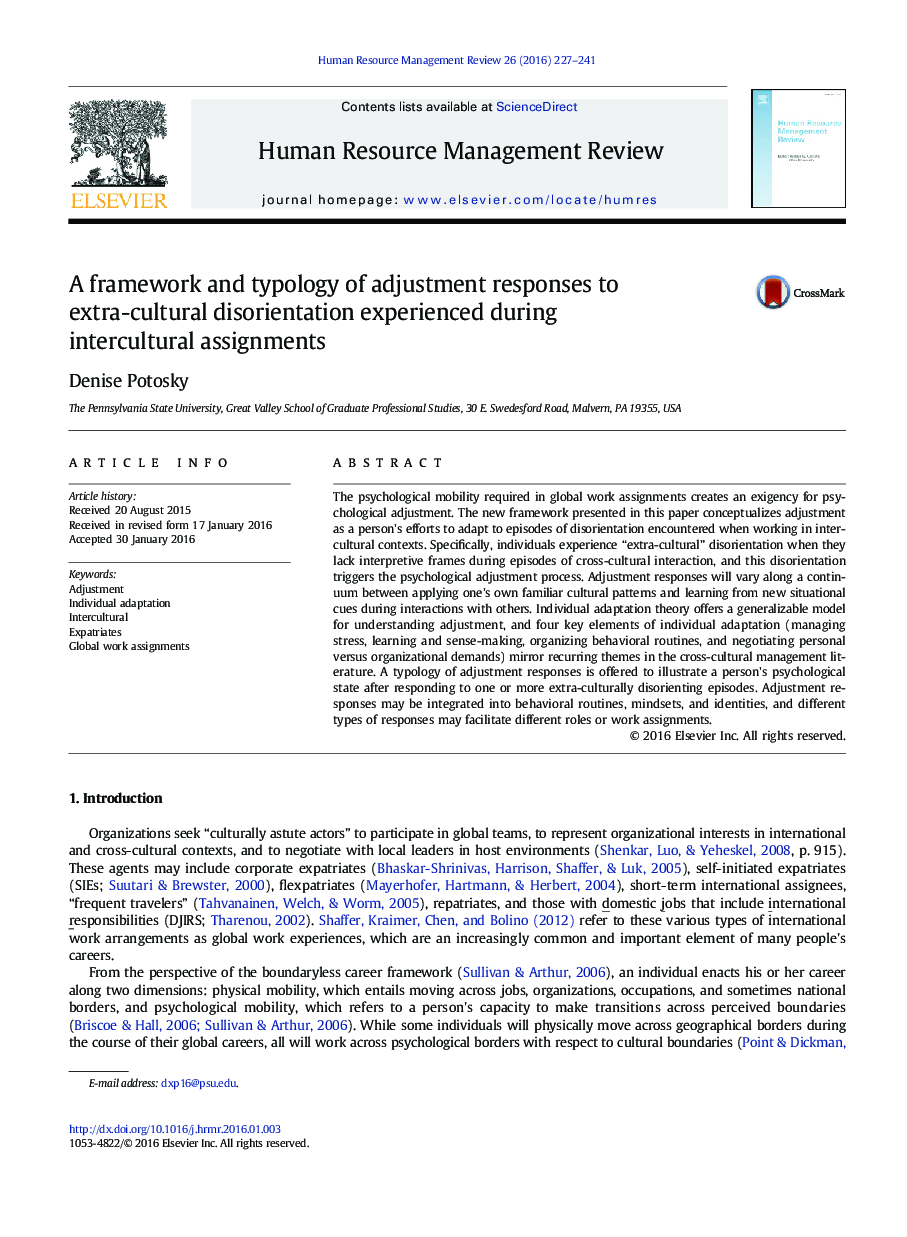| Article ID | Journal | Published Year | Pages | File Type |
|---|---|---|---|---|
| 879544 | Human Resource Management Review | 2016 | 15 Pages |
•Psychological mobility provides a compelling context for adjustment.•Episodes of extra-cultural disorientation trigger psychological adjustment.•Adjustment responses vary between focusing on the self vs. the situated other.•Individual adaptation theory suggests that adjustment entails four key tasks.•Mapping the four tasks along a self-other continuum reveals a typology of adjustment responses.
The psychological mobility required in global work assignments creates an exigency for psychological adjustment. The new framework presented in this paper conceptualizes adjustment as a person's efforts to adapt to episodes of disorientation encountered when working in intercultural contexts. Specifically, individuals experience “extra-cultural” disorientation when they lack interpretive frames during episodes of cross-cultural interaction, and this disorientation triggers the psychological adjustment process. Adjustment responses will vary along a continuum between applying one's own familiar cultural patterns and learning from new situational cues during interactions with others. Individual adaptation theory offers a generalizable model for understanding adjustment, and four key elements of individual adaptation (managing stress, learning and sense-making, organizing behavioral routines, and negotiating personal versus organizational demands) mirror recurring themes in the cross-cultural management literature. A typology of adjustment responses is offered to illustrate a person's psychological state after responding to one or more extra-culturally disorienting episodes. Adjustment responses may be integrated into behavioral routines, mindsets, and identities, and different types of responses may facilitate different roles or work assignments.
